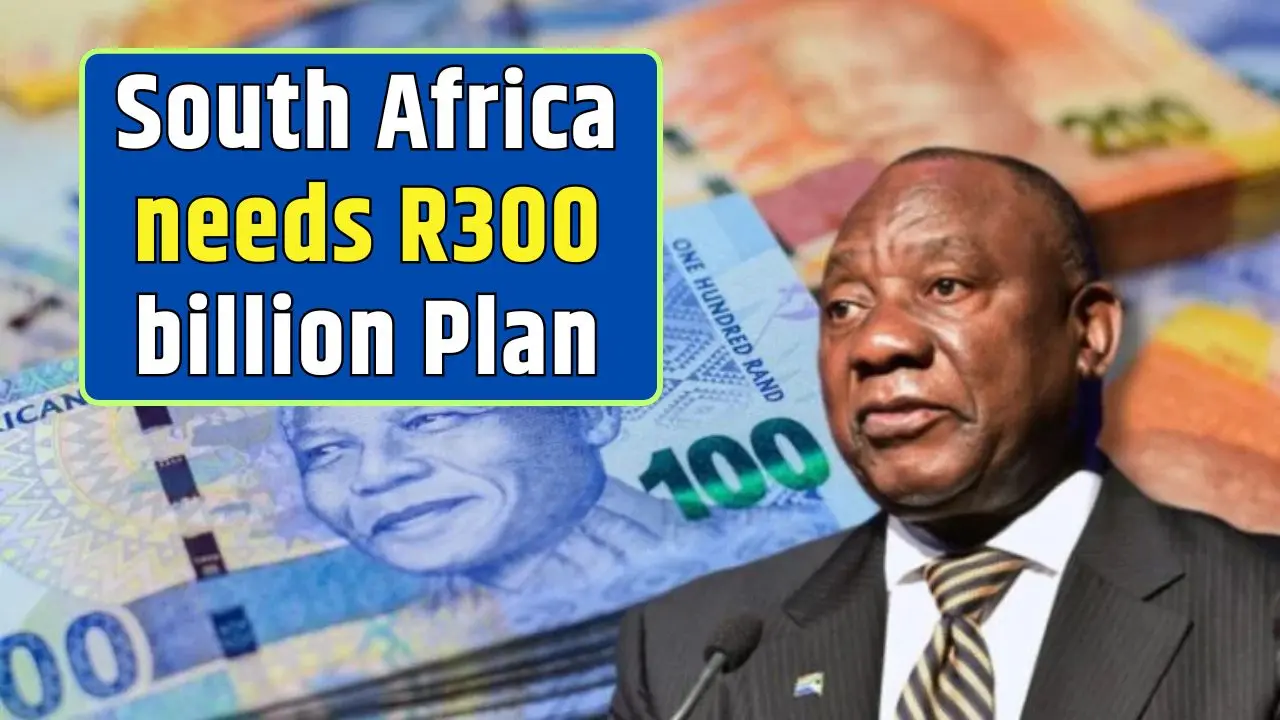Thus, R300 billion is required to realize a sweeping turnaround and a not-so-dreamy tripling of South Africa’s economy. Economic experts and high-ranking officials have thus put forward such an ambitious target as part of an all-inclusive strategy to rehabilitate the economy, struggling at best. This paper clearly represents discussions on the proposed investment, expected results, and possible challenges that South Africa might have to encounter for the attainment of such ambitious and outrageous goals.
The Economic Context
For a long time now, it has been slow growth, massive unemployment, and burgeoning poverty for South Africa. The COVID-19 pandemic worsened the already dire state of affairs in the country and became another low point in the economy. The economy has seen well below the average growth rate of about 1% per annum for the last couple of years-a real shame for a nation so richly endowed with natural resources and boasting of such good infrastructure.
To reach this economic capacity, South Africa should invest a lot in some main sectors, such as infrastructure, education, technology, and job creation, experts argue as well as improve its citizens’ quality of life. It will require major investments in these areas to ensure a growth rate of 3% to 5% a year, which would about triple the growth trajectory prevailing.
The R300 Billion Investment Plan
This R300 billion investment under consideration is a multi-year project that spans across sectors and, therefore, cannot be said to be spent at once. Funds will therefore be allocated to infrastructure projects, the emerging industries with high growth potential, and social programs aimed reduction of both unemployment and poverty.
- Infrastructure Development
Considerable portions of the R300 billion earmarked for infrastructure projects such as roads, rail, ports, and electricity generation are given to South Africa. Most of the country’s existing structures are obsolete and require repair, while new ones required because of increased population and business sector activity. Evolving infrastructures can build thousands of jobs and sharpen local economies as well.
- Investment in Education and Skills Development
Long ago, the South African education system was in a very difficult condition because education quality differences between rural and urban areas existed. Economic improvement requires an enhancement of education paired with skills development programs adapted to the needs of new industries, especially in technology, renewable energy, and advanced manufacturing. All these would help to make the youth more employable, enhance foreign investment attraction into high-value sectors, and, thus, might spur economic growth.
- Technological Advancements and Innovation
As technology increasingly drives global economies, South Africa stands at a vantage point to take digital transformation to the next level. There are many investment opportunities in innovation, particularly in fintech, green energy, and biotechnology, to make it a local champion in these fields. Some of the R300 billion investment would be geared towards developing startups and creating a tech economy.
- Job Creation and Social Welfare Programs
Unemployment is one of the worst challenges in South Africa, and official estimates put this at more than thirty percent. In this regard, the R300 billion plan looks towards job creation, particularly through public and private entities employing more people into the public sector. Social welfare programs such as unemployment benefits and skills retraining shall also undergo scaling to help people enter these changes into economic life.
The Potential Impact
Once the R300 billion investment is effectively put into place, such an asset could add a significant resource to the national economy of South Africa. According to experts, this could enable the nation to achieve annual growth between 3 % and 5 % in the next decade, a much higher rate than current performance. Improvements in business activity, unemployment declines, and sustainable increase in the standard of living for millions of South Africans are some of the expected benefits.
Such an investment would also make South Africa a more appealing destination for foreign direct employment investors, seeing South Africa as a stable growing base with modern infrastructure and a skilled workforce. It would also allow economic diversification from the traditional reliance on mining and manufacturing sectors.
Challenges to Overcome
Although many benefits are endowed by the application of this investment plan, there are still several challenges that have to be combated by South Africa.
- Political Will and Governance
To implement such a large-scale investment plan, South Africa will require considerable political will and good governance. This will ensure that funds are allocated transparently and used effectively. Nonetheless, this has been misleading in other past government initiatives where corrupt practices and mismanagement have been reported.
- Debt and Fiscal Constraints
The public debt in South Africa is high, and it faces many fiscal constraints. Funding the R300 billion investment will take creative financing arrangements such as public-private partnerships, foreign investments, and possibly concessional loans internationally.
- Global Economic Conditions
Many other global influences inhibit South Africa that affect economic growth via commodity prices or relations in international markets. To be able to sustain growth when the world around changes with the ebb and flow of external shocks, the country will need an agility of strategies and resilience.
Conclusion
The R300 billion need for South Africa to meet its growth target indicates the size of the challenges facing the country; it is a good opportunity for placing the nation in a pathway towards sustained long-term prosperity. The funding of the investment could transform the economy of South Africa, improve the quality of life of its citizens, and turn this country into a competitor on the global market. Successful execution of this ambitious plan will, however, depend on effective leadership, proper investments, and the overcoming of many challenges ahead.



